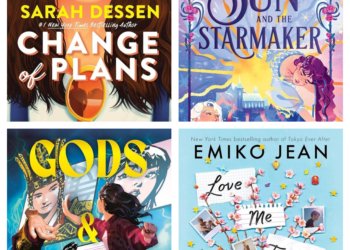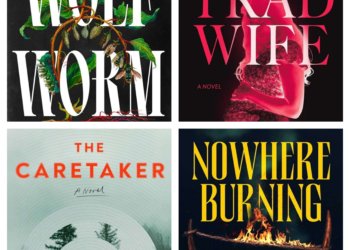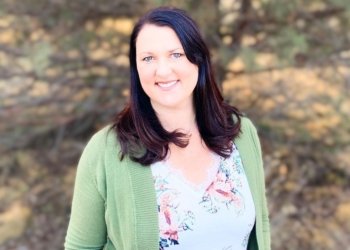No products in the cart.
A Conversation with Lewis Kempfer, Best-Selling Biographies & Memoirs Author
Lewis Kempfer is an award winning writer, director and producer known for Don't Mind Me, I'm Just Having a Bad Life: A Memoir.
900
SHARES17.5k
VIEWSLewis Kempfer grew up in Denver, where he began his writing, singing, and acting careers. He attended college in Phoenix, studying print journalism at Arizona State University while working at the city’s largest public relations firm. In 1995, when offered a development deal to be a country recording artist, he relocated to Nashville, where he earned his bachelor’s degree from Trevecca Nazarene University. In 2000, he co-founded the Boiler Room Theatre. While directing and producing at the Boiler Room, he wrote book and lyrics for two original musicals, “That ’60s Christmas Show” and “Billy Bob’s Holiday Hoedown,” both of which played to enthusiastic, standing-room-only houses. His six-year body of work at the Boiler Room led to a dream job with the Walt Disney Company in L.A. He also created an award-winning, self-promotional short film, “From Concept to Completion,” in 2007. After three roller-coaster decades, he returned to Denver where he lives with his best canine mate, Marty McPug.
Let’s get started with a quick rapid fire.
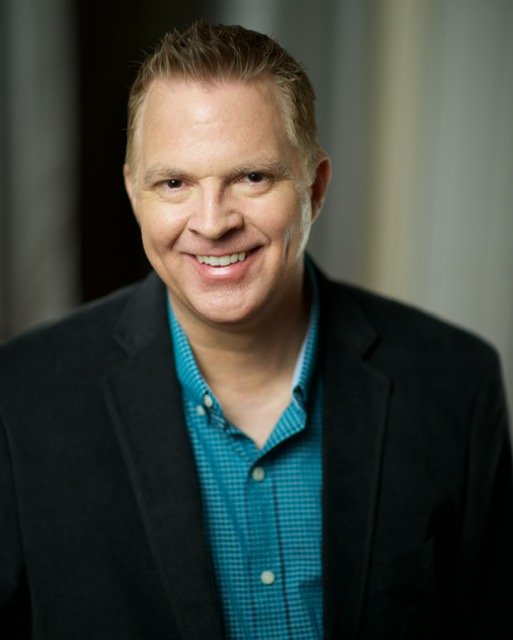
Q1.If you could be transformed into one animal, which one would you choose?
Dog.
Q2. Finish the phrase “the way to my heart is…”
With Ben & Jerry’s Cherry Garcia ice cream.
Q3. Are you more of an introvert or an extrovert?
Although I was a professional performer for 30 years, I’m still an introvert. I’m better in small groups.
Q4. Do you watch shows one episode at a time or binge whole seasons?
I binge entire series. Over the last three years: The Big Bang Theory (twice); Friends, Melrose Place (twice), Desperate Housewives, Devious Maids, and now 2001’s Star Trek: Enterprise.
Q5. Would you rather travel to the past or to the future?
The past! I’ve always felt I belonged in a different era such Victorian times or the 1950s. I’d like to go back in time to my past and make better choices.
Q6. What is your last Google search?
“What is the plural of ‘series’?” Turns out, the word is exactly the same for singular and plural. “The night Sondra pulled her stunt, she stopped mid-roll, keeping her bare legs wide open to display her ‘buy season tickets’ message written in Sharpie. Whether it sold any tickets, well, none of us knew for sure. But if we did, Sondra helped provide a leg up.”120 Seats in a Boiler Room: The Creation of a Courageous Professional Theater, Lewis Kempfer
Q7. What object do you misplace or lose the most?
My brain. Just kidding. My reading glasses.
Q8. What is the kindest thing someone ever did for you?
Stumped on this one. I haven’t had a very good life, hence the story told told in my first book: Don’t Mind Me, I’m Just Having a Bad Life. It won seven awards.
Q9. If given the chance to start your life over, would you take it?
Only if I knew what I know now.
Q10. What is the best present you have ever received?
Again, stumped. See above answer. “Going through theater camp registrations, I saw a familiar name: Country singer Billy Ray Cyrus who was a season-ticket holder. He had enrolled a female child with what seemed to be a misspelled first name that I could only assume was ‘Millie.’ Turns out it was pronounced Miley.”120 Seats in a Boiler Room: The Creation of a Courageous Professional Theater, Lewis Kempfer
Q11. Describe your style in one word.
Classic
Q12. If you were to devote the rest of your life to philanthropy, what cause would you choose?
Dog rescues.
It’s time for a more detailed conversation, Lewis.
You’ve answered our rapid fire brilliantly, Lewis. Now, it’s time for our readers to know more about the person behind the book.
Q. There’s a grand stage surrounded by fifty thousand people listening to authors introducing themselves. They are bored and restless of listening to introductions all day. It’s your turn. How would you introduce yourself?
Hi, I’m Lewis and I’ve often been told I’ve done just about everything possible in my lifetime. My first book, a memoir called Don’t Mind Me, I’m Just Having a Bad Life, won seven awards and tells the story of 40 years of my life. I had a record deal as a country singer. I was offered the chance to be on the national tour of Rent understudying the leads but turned it down. I co-founded and ran a professional theater in Nashville where my large body of set design work got me hired into a coveted position in live entertainment with Disney in California. I moved to Hollywood and fell into the party scene and became a drug addict. Turning to God, I overcame the drug addiction instantaneously, cold turkey.
Q. Well, that will keep you in our thoughts. So, what books did you grow up reading?
I’m a guy, but as a kid I loved reading Nancy Drew books. Once I took one to school and was humiliated by other students. They took the book and kicked it around then tore it up calling me a fag. I also loved the Little House books. When the monthly Scholastic book order forms came out, despite my Mom being single and poor, I always got to pick two books. From there, I got a little book titled Call It Courage that I still have and have read it when I’ve been down.
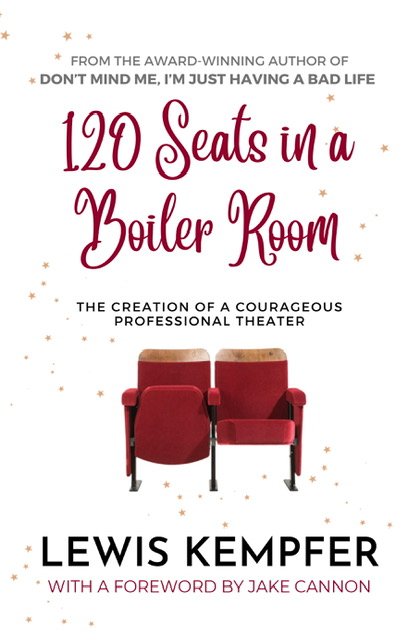
Q. Interesting. Has writing and publishing a book changed the way you see yourself?
That’s a bit of a loaded question. While it is nice to have won several awards for my first book, naysaying people remind me that I’m “only self-published” and that it doesn’t really count. But I’ve been writing since I was 10 in a variety of settings and jobs. I’ve discovered I have a distinct “voice” that readers really like. I’ve always struggled with low self-esteem and when I received the awards, that negative voice in my head would say, “But you’re only self-published.” I’ve since tried to tell that little voice where it can go. And I felt more confident writing my second book that’s coming out on October 11. At Disney we were considered storytellers. I now see myself as finally being one.
Q. Would you share something about yourself that your readers don’t know (yet)?
I have perhaps the single largest collection of Annette Funicello records. You know, the former Disney Mouseketeer and queen of the beach movies? For a girl who claimed she couldn’t sing, she released at least 14 albums. I have between 10 and 30 copies of EACH. It’s a little embarrassing, but they are increasing in value, so maybe one day if I need the money, I can sell off some copies. Ever since I was a kid and my Mom gave me her Annette 45s from her youth, I was hooked. I struggle with bad depression, but when I play an Annette album, her buoyant, bubbly voice coupled with the cheerful orchestrations, I can pull usually pull myself out of a funk.
Q. Now comes the most anticipated question that every author must answer. How do you process and deal with negative book reviews?
In two words, “not well.” I know now why some authors and famous actors say they never read reviews of their work, good or bad. But curiosity always gets this particular cat and I have to know what was said. It can trigger a deep depression cycle during which I decide that I don’t want to ever write again. But then something magical happens. I wander on tiptoes to my laptop or iPad and just start writing. And the next thing you know, I have the makings of a book. “As a kid who was raised outside the church, I wholeheartedly believed they were singing, ‘bringing in the cheese, bringing in the cheese, we shall go rejoicing, bringing in the cheese.’ Why are they always singing about cheese? And why do they always have to bring it in? Did they leave it outside by mistake?”Don’t Mind Me, I’m Just Having a Bad Life: A Memoir, Lewis Kempfer
Q. What comes first for you — the plot or the characters — and why?
This question barely applies to me. My first two books—one a true memoir, the other memoiresque due to it having guest authors who penned chapters—have been non-fiction. First, the characters. They are or were real people and as such have had to respect their privacy by changing names and identifying details. I also combed through the final draft looking for potentially libelous statements. As for plot, I can’t change what has actually happened, but I do look at the structure of the narrative. Does it make sense? Would the use of flashbacks confuse the reader? Should I rearrange the order in which actual events happened? Am I telling a story worth telling?
Q. How do you develop your plot and characters?
I think my previous answer above addresses this question. And as a non-fiction author—until the next book, a novel—these things can loosely apply but in different ways. To confirm the theme of my above answer, for my forthcoming book 120 Seats in a Boiler Room: The Creation of a Courageous Professional Theater, I intended to include some backstage stories that had become part my theater’s folklore but were raunchy and could embarrass the person involved.
On my last-pass libel check, I started thinking a lot about two stories of things that happened backstage involving the choreographer (and cast member) during our long summer run of A Chorus Line. Both stories were true. One was mildly offensive. Sherry (not her real name) usually came offstage to the dressing room area and stripped down the top of her gold, sequined finale costume exposing her bare breasts. She’d had a boob job a few years prior, and she was quite proud of them. So she would walk around topless giving dance notes. I think it traumatized one high-school boy in the cast.
The second story was about the night Sherry came offstage and announced, “My [derogatory reference to female genitalia] has been wet all night.” That evening I went out with some of my cast (I was the director) to a popular Nashville restaurant. It was raining hard and we were seated under a leaky ceiling. As drops hit my face I said, “Sherry, is that you?” Raucous laughter.
The fiction writers’ long-standing advice to “kill your darlings” applied here. I had to ask myself if the stories furthered the narrative or would just be offensive. I tracked Sherry down through other cast members (the show was in 2001) because she wasn’t on any social media. I sent Sherry the stories, she was mortified, denied they never happened, and forbid me to use them. Out they went. That “character” instantly became less colorful, but probably elevated the book to a classier work. I never intended it to be a scandalous tell-all.
Q. What does literary success look like to you?
Selling more books, getting an agent, and a publishing deal. I know it’s not impossible for Indie authors, but continues to grow more difficult than ever to become a “big boy” author.
Q. Let’s talk about your book. Tell us about it. No major spoilers.
It’s the story of how four theater friends who wanted to start their own theater company in its own space, not something shared, but a building they could inhabit full time. After an exhaustive search, we—I was one of the four—found a dilapidated boiler room building filled with pigeon poop and debris at a former stove factory built in the 1920s that was slowly being renovated. The Factory at Franklin (about 20 minutes south of Nashville) was one of the first in the nationwide trend of taking old industrial spaces and turning them into destinations with stores and restaurants. They wanted an entertainment tenant. We needed a space. A match was made.
Building Six became the Boiler Room Theatre (BRT) in an unlikely venue and certainly the most unique in the entire region. The building had wonderful vintage charm. The stage was small but I pushed my partners to agree to do huge shows to attract ticket buyers. A Chorus Line was a smash hit as was the enormous Disney’s Beauty and the Beast. Audiences constantly in awe of we what pulled off on that little stage. The book tells the story from finding and renovating the building to the middle of BRT’s 14-year run, the summer of 2006, nearly six years since its opening when I moved to California to fulfill my Disney Dreams.
After announcing the book on Facebook, people I knew and some I didn’t started coming forward eager to tell me their story—many of which were about how performing or working at my theater changed their careers and lives for the better. I asked the first guy if he would write a chapter and a trend began. The finished book has chapters by 12 guest authors that help fill in gaps, particularly of the years after I left until the Boiler Room Theatre was forced out of its namesake venue because a nearby theater company didn’t want competition. And we were competition. We received consistently positive reviews from both critics and guests.
I also include approximately 20 “Hot Tips” or mini chapters with advice directed squarely at new or current theater owners and managers. And with five appendices listing every show; every award; every grant; every sponsor, advertiser and/or donor; and a list of appropriately 1,000 names of those who ever worked in or for the theater, the book neatly captures a vast amount of historical data. It’s a well-rounded story that as the theater’s historian, I knew had to be told. Although the theater concluded its near-14-year run in 2014, people in Nashville still talk about the Boiler Room Theatre and how much it’s missed.
Q. What part of the book did you have the hardest time writing?
Toward the end of my tenure, a disgruntled cast member wrote a scathing email and sent it to every Boiler Room person he could. In it he called me names and accused me of being the constant killjoy. Still under the heading of “looking for libel,” I reached out to him seeking permission to use portions of that email. He said print every word or don’t print it at all. That got messy but I think we landed on an excerpt that captures the overall spirit of the email without quoting the entire thing.
But I learned something I’d always been wrong about. The email subject line was “I Am Spartacus,” taken from an old movie in which a tyrant leader bullies thousands of his subjects stating that a martyr named Spartacus was going to be out to death. That is until, in an act of solidarity, someone in the crowd yells “I am Spartacus,” eventually inspiring the masses to chant the words with him. They were saying they were all martyrs, that they bad Spartacus’s back. I always thought—because I was a bit of a martyr for the theater I helped create—that my martyrdom was the problem. Nope. I was actually the angry, evil tyrant leader. I’m glad I researched the phrase, but the wound split open all over again. I wrestled with including the story, but it cemented my decision to leave the theater.
Q. Tell us about your accomplishments and what they meant to you when you achieved them.
After releasing my first book in 2019, I started entering it in contests. I was pleasantly surprised when Writers’ Digest gave me an Honorable Mention. I did I’d receive real awards until they started coming in, seemingly all at once. I was flabbergasted. Friends on Facebook remarked, “NOW will you believe we’ve been telling you? You’re damn good writer.” A part of me still feels like it was all undeserved, that perhaps they had so few entries that I won. Here’s a list of the awards on honors.
- 2022 First Place LGBTQ Biography from The BookFest Awards
- 2022 Third Place [All] Memoirs from The BookFest Awards
- 2021 Independent Author Network Book of the Year Category Award for LGBTQ
- 2021 IndieReader Discovery Category Award for LGBTQ Non-Fiction
- 2021 Gold Medal from Literary Titan
- 2021 Silver Medal from Readers’ Favorite International Book Awards
- 2020 Silver Medal from Readers’ Favorite International Book Awards
- 2021 Shortlist Finalist Page Turner Awards
“There was so much to take in, so much to see. I hadn’t felt this visually overwhelmed since visiting Disneyland as a kid. This was the adult Disneyland of gay Denver, a bathhouse with a dark side and seedy underbelly, keeping many secrets within its black-painted walls and purple glow lights.”Don’t Mind Me, I’m Just Having a Bad Life: A Memoir, Lewis Kempfer
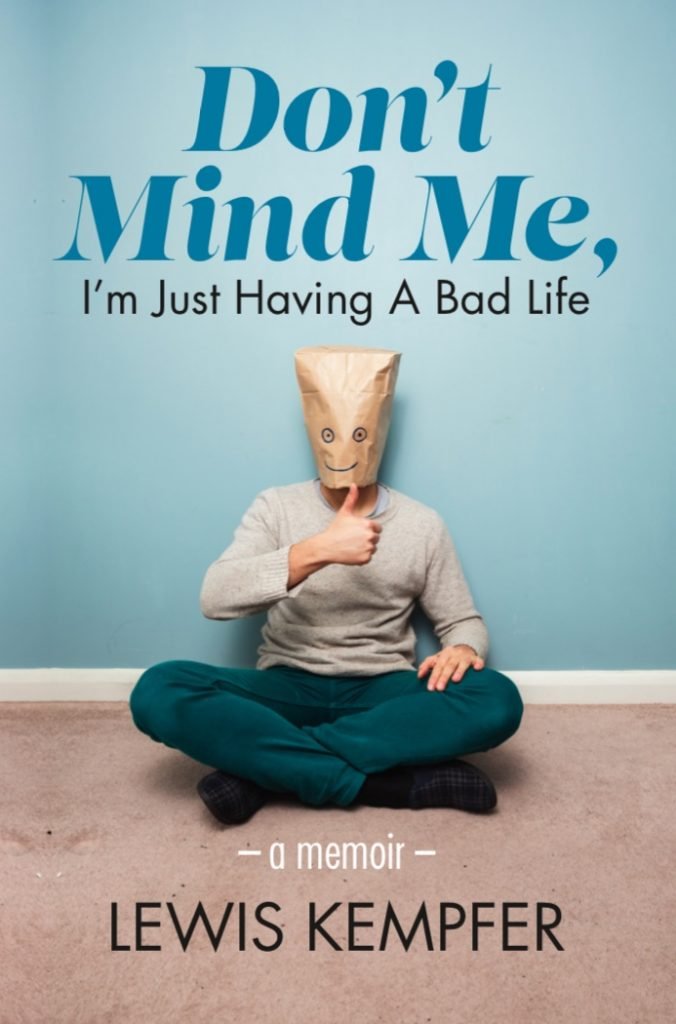
Q. If you could meet your characters, what would you say to them?
Well, I already know my characters from real life. But the book is what I have to say to them—how hard I worked to help create the theater and keep it running against all possible odds.
Q. What is your writing process like? Are you more of a plotter or a pantser?
I am a “plantser,” that is, a combination of both. I often start with an outline, then never look at it. So perhaps I’m more of a pantser than I think I am. I do my best work at night when I’m fighting insomnia and bang out chapters on my iPad Mini while laying in bed. I create multiple drafts numbered like computer software with file names like “Draft 2.3” in which the “2” signifies as a major rewrite including additions and/or subtraction of sections or chapters. The second number indicates semi-major changes have been made.
Q. Let’s talk about the process of writing. When you’re writing an emotional or difficult scene, how do you set the mood?
I don’t require anything to set the mood other than quietness. I can’t write with music playing, even instrumental. My reason for this may because I’ve been a singer all my life and my brain wanders away to figure out how the music was written out.
Q. What has helped or hindered you most when writing a book?
Having a mentor who’s been a constant inspiration. I had just met my mentor of 36 years, Martin Moran, a boy-next-door kind of guy from Denver who had just landed his first role—a starring role—on Broadway in Big River. We had one magical hour of conversation in the parking lot of a long-since-gone gay dance club in Denver. He encouraged me to come to NYC and said he would help open doors where and if he could.
He even offered a patch of floor to sleep on in the large SoHo warehouse loft where he lived with several other up-and-coming actors. But I was too frightened and broke to move. Many years later, Martin wrote two memoirs, one telling the story of childhood sexual abuse. I figured I had a story of childhood abuse (although not sexual) that set the tone for my life. I also had a story to tell, and with his encouragement, tell it I did.
Q. It’s been fun. Now, before we wrap this up, do you have any suggestions to help me become a better writer? If so, what are they?
Have a system for making notes. Find what works for when inspiration strikes. Keep a small notebook in your car or (when not behind the wheel) use a notes app on your smartphone. I’ve written entire chapters on an iPhone. Just be prepared when those streams of words start coming as they may never come again. I’d also suggest reading a couple of books within your genre to get an idea of tone, length, and structure before writing your first book or first book in a different genre.
Related Posts
8 Most Anticipated YA Romance Books of 2026
As we step into 2026, the world of young adult literature is bursting with excitement and promise, especially for fans...
8 Most Anticipated Horror Books of 2026
If you’re a horror enthusiast, get ready to mark your calendars! The literary world is buzzing with spine-chilling tales and...
10 Most Anticipated Thriller Books of 2026
If you’re a book lover with a penchant for suspense, then get ready to mark your calendars! As we look...
A Conversation with Kerry Chaput, a Historical Fiction Author
Kerry Chaput is an award-winning historical fiction author who writes about daring women with loads of adventure and a splash...
About Us

Trenzle
Where Trends are made and discovered
Trenzle is your official source of discovering the latest people, work, and ideas that deserve to trend. Discover Authors and their books, Creators and their work, People and their opinions, and Stories from around the globe.
Learn more
Latest Posts
8 Most Anticipated YA Romance Books of 2026
January 13, 2026
Trenzle Top 10 Trending Free Book Deals for January 05, 2026
January 5, 2026
8 Most Anticipated Horror Books of 2026
December 26, 2025
Categories
© 2023 Trenzle - Online Author News & Magazine




